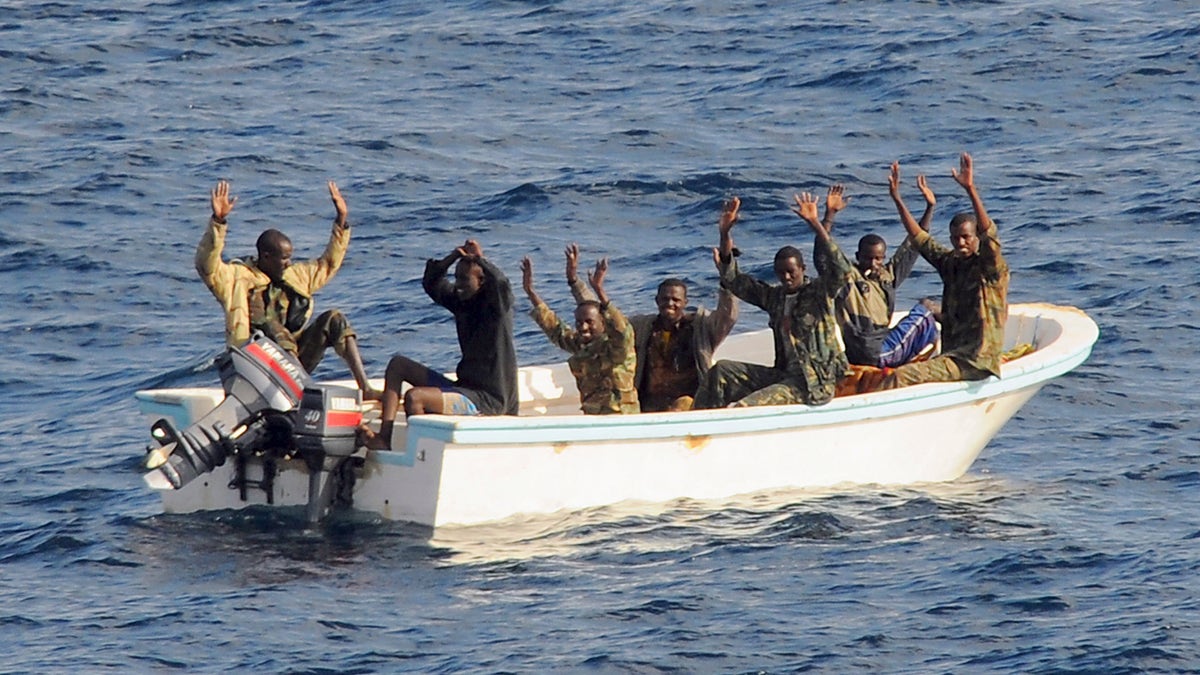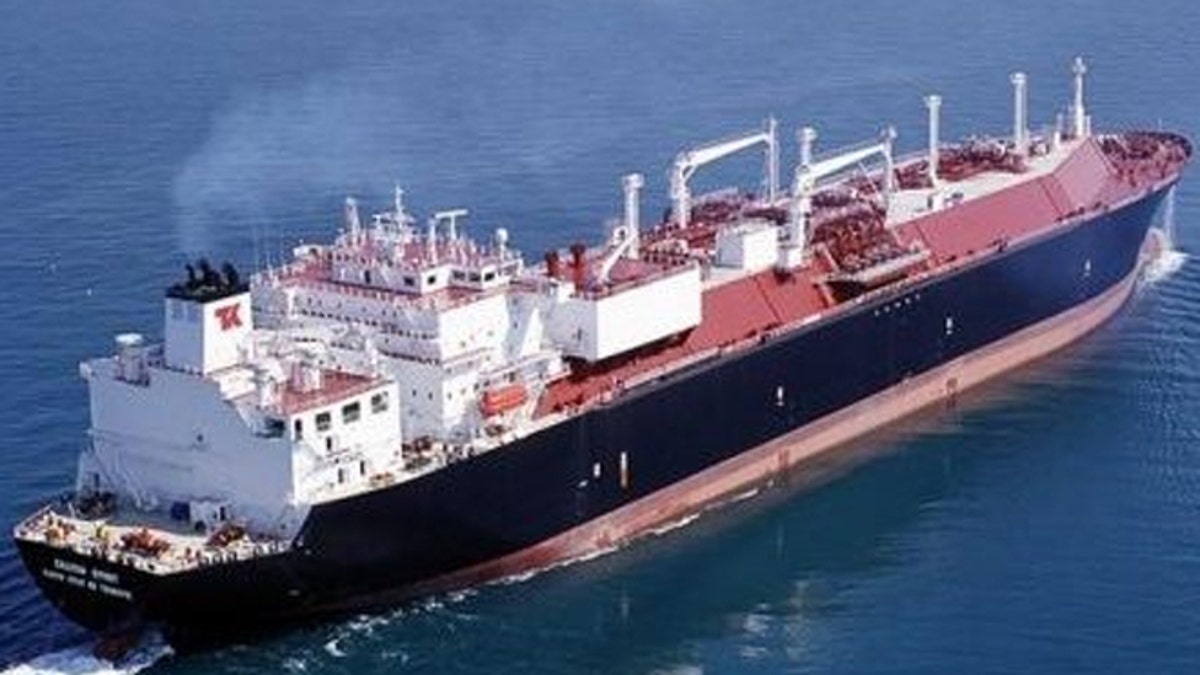
Suspected pirates (REUTERS/Jason R. Zalasky)
The rocket-propelled grenade fired from a small boat Tuesday at a liquefied natural gas tanker landed harmlessly on the massive vessel's deck, but still reignited a fierce debate about the right of sailors to defend themselves at sea.
The attack, off the coast of embattled Yemen, targeted the Spanish ship Galicia Spirit, hauling gas from Qatar, and raised the prospect of a terror attack on a spectacular scale.
MISSILE FIRED AT US SHIP FROM YEMENI REBEL-HELD TERRITORY
“The use of RPGs in an attack against a vessel in this shipping choke point is very worrying,” UK security broker ASKET said in a note sent to industry insiders.

The Galicia Spirit.
Another security firm noted the vessel had no ability to defend itself.
“[We] understand that the vessel had no armed security team on board, and that the vessel sustained small arms fire as well as the RPG,” British maritime security agency MAST told Reuters.
Experts could not say if the weapons fired at the Galicia Spirit could have penetrated her hull and touched off an explosion. But, as during the wave of pirate attacks off the east coast of Africa in recent years, the high seas run-in sparked new debate about defenseless ships going through dangerous passageways.
“There has been a step change in the use of violence offshore in the region over the past month,” said Ambrey Risk, a UK security firm, reported by Splash 24/7.
None of the assailants was able to board the ship, with all of the crew escaping the incident unharmed. A Djibouti naval vessel escorted the tanker for the remainder of its journey through the dangerous waters.
The area in question, the Bab al-Mandab strait, is one of vital importance as well as a hotbed of violence. Roughly four million barrels of oil, as well as a host of other goods pass through its tumultuous waters daily, while civil war rages on the shores of Yemen.
It was a little over two weeks ago when a US Navy destroyer, the USS Mason, was fired upon while patrolling close to where the incident with the Galicia Spirit occurred. Iranian-backed Houthi rebels are suspected in that attack.
Barry Parker, a New York-based maritime business expert, acknowledged that armed contractors aboard ships “stopped the problem with piracy in Somalia.” But he said the incident off the coast of Yemen was different and said conflicts there will be almost exclusively focused on the civil war.
If attacks like Tuesday's are related to the war - the cargo was from Qatar, which is aligned with the Saudis who in turn oppose the Houthis - vessels might be better served by additional patrol boats as well as designated transit lanes.
